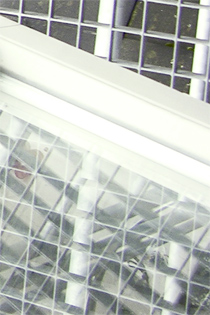Esquisses d’une construction artistique, intellectuelle et politique d’une notion.
Simon Borja, Guillaume Courty et Thierry Ramadier | 14.10.2014
À la fois un concept, une croyance collective et diffuse, et une composante de l’idéologie dominante, la mobilité est abordée comme une triple coproduction anonyme dans laquelle sont intervenus, dans le désordre et sans avoir toujours conscience de le faire à dessein, des chercheurs, des artistes et des politiques. Pour objectiver la construction de cette notion, nous proposons de repérer quelques éléments de sa carrière, c’est-à-dire de la suivre à la fois dans les champs qu’elle traverse et les [...]
Construction d’un espace de déviance.
Kenza Afsahi et Khalid Mouna | 30.09.2014
La culture de cannabis au Maroc s’est intensifiée durant les années 1970 dans la région du Rif central, bouleversant les rapports socio-économiques entre les acteurs. Cet article se propose d’interroger le processus historique qui a occasionné le développement d’un espace favorable à la production de cannabis, notamment dans les tribus de Ketama et de Ghomara, ce qui a conféré à ces tribus l’identité notoire de « bled du kif ». Nous analyserons également les interdépendances entre les différents acteurs [...]
Nicolas Poirier | 21.09.2014
The aim of this paper is to bring to light the centrality of the Present within the framework of the democratic regime by showing that, far from being a definite obstacle to whoever wishes to locate themselves truthfully in Time, inscribing oneself resolutely within the Present is a necessary condition to develop an ethical and political activity through which the individual and society can transform themselves. Before we criticize presentism, we will conduct a methodological and epistemological reflection on [...]
Enquête sur un tournant sémiotique dans les pratiques de démocratie participative.
Mathieu Berger | 15.09.2014
In recent years, in the field of participatory urban politics, many political philosophers and social scientists have pointed out the need to decenter formal discourse and argumentation and to enhance more « inclusive », more « sensitive » and more « sensory » forms of democratic communication, which would directly deal with the environments and the experiential and material dimensions of urban problems. Apparently, the message has been received. Today, group visits in the neighborhoods, video and photoreports, exhibitions [...]
Alexandre Rigal | 09.09.2014
This article aims at understanding how the urban dweller experiments the heterogeneity that emerges from the density and diversity of urban space. Two classical propositions are presented : Simmel’s figure of the blasé and the Situationnists’ figure of the dérive. However, both figures must be nuanced : the first neutralizes too many differences whereas the second intensifies them too much. Starting from these repelling figures, we discover the figure of the remix, which links the capacity to experiment differences [...]
Quand l’espace renouvelle les pratiques littéraires.
Géraldine Molina | 16.06.2014
L’Ouvroir de Littérature Potentielle (OuLiPo), created in the sixties, brings together writers who use language in a recreational and experimental way by inventing constraints to generate new literary dynamics. This article intends to explore how the Oulipians’ literary activities instigate a renewed relationship with space, time and society, which perturbs the traditional process of making literature. The work of the Oulipian Jacques Jouet, particularly representative of the trend, will be at the heart of this analysis. This author’s space-time-society [...]
André Ourednik | 12.06.2014
« Grain upon grain, one by one, and one day, suddenly, there’s a heap, a little heap, the impossible heap. » Beckett, Endgame (1957) Paleontology, as taught in schools and to the general public, sometimes produces images of past realities that are directly related to present places. For instance, an image can title “The Permian fauna of [...]
Remarques sur une votation populaire et son traitement graphique.
Manouk Borzakian | 27.05.2014
Various maps of the results of the 9th February 2014 Swiss vote “Against mass immigration” have been used in the debate that followed it. They offer the opportunity to question methodological decisions regarding the making of electoral maps and the ensuing statements. The maps that were the most shared on the Internet and in institutional media convey a partial view of the polls’ socio-spatial logic. In order to produce a more complete analysis and to minimise the ecological fallacy [...]
Activisme culturel, pratiques créatives et transformation urbaine.
Charles Ambrosino | 19.05.2014
At a time when cities are competing as rivals with cultural landmarks, artistic events and prestigious labels to be more attractive, the famous Banksy and the alternative art scene insure the city’s marketing. This endogenous phenomenon is closely linked to the recent grassroots regeneration of the Stokes Croft district, known as a global street art hub where creative practices, cultural activism and radical movements have nurtured. [...]
Éléments d’analyse spatiale des résultats des élections législatives marocaines du 25 novembre 2011.
David Goeury | 12.05.2014
Following the 20th February movement and the vote of a new constitution on the 1st July 2011 in Morocco, parliamentary elections were held on 25th November 2011. Cartograms of electoral results show that the Moroccan political space is driven by two different spatial dynamics. On the one hand, in rural areas and sparsely populated provinces, we find the persistence of a traditional political space marked by the mobilization of the electorate around local figures acting as “députés de services”. [...]

